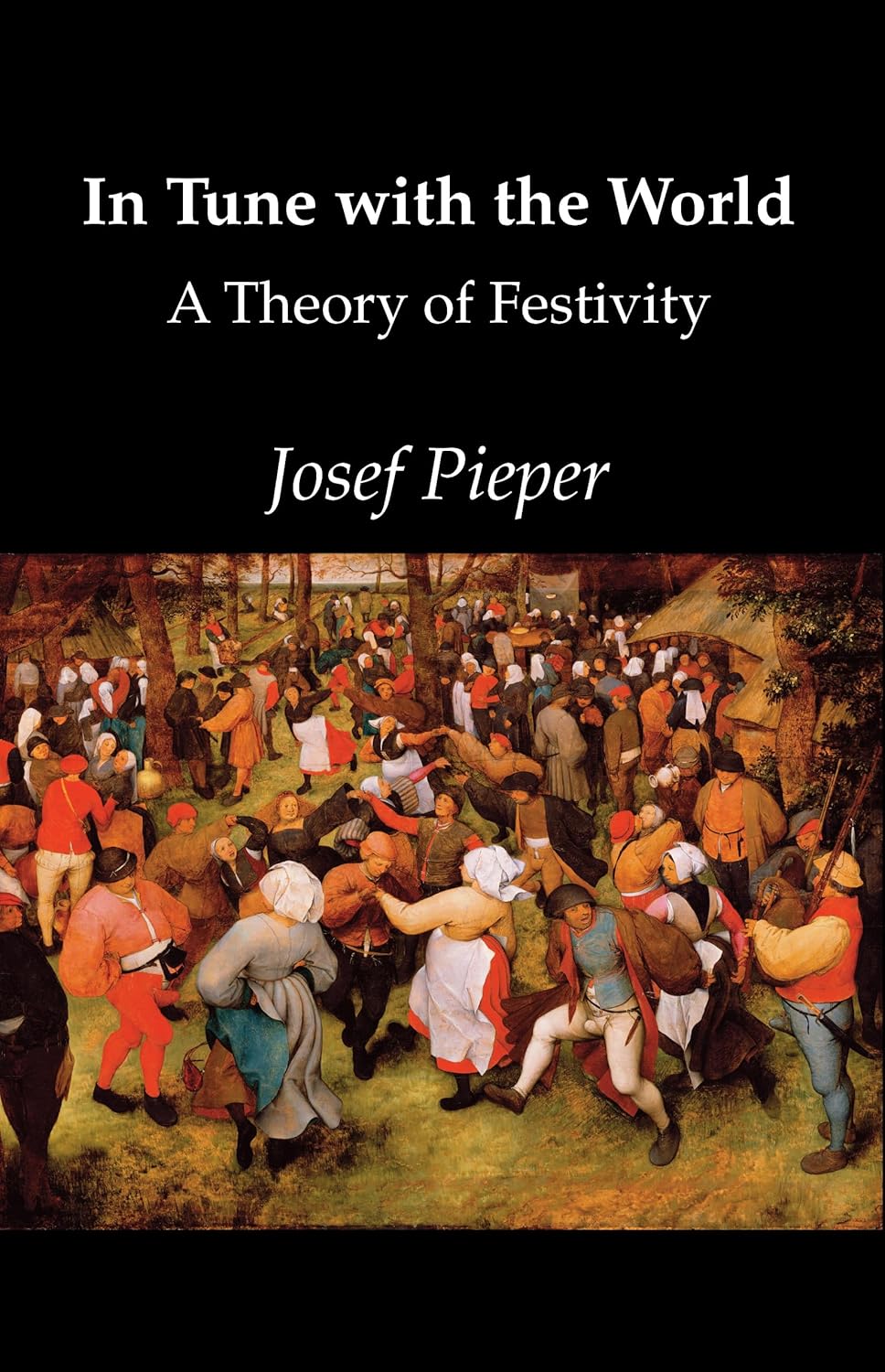
“Underlying all festive joy kindled by a specific circumstance there has to be an absolutely universal affirmation extending to the world as a whole, to the reality of things and the existence of man himself. Naturally, this approval need not be a product of conscious reflection; it need not be formulated at all. Nevertheless, it remains the sole foundation for festivity, no matter what happens to be celebrated in concreto. And as the radical nature of negation deepens, and consequently as anything but ultimate arguments become ineffectual, it becomes more necessary to refer to this ultimate foundation. By ultimate foundation I mean the conviction that the prime festive occasion, which alone can ultimately justify all celebration, really exists; that, to reduce it to the most concise phrase, at bottom everything that is, is good, and it is good to exist. For man cannot have the experience of receiving what is loved, unless the world and existence as a whole represent something good and therefore beloved to him. . . .
“Strictly speaking, however, it is insufficient to call affirmation of the world a mere prerequisite and premise for festivity. In fact it is far more; it is the substance of festivity. Festivity, in its essential core, is nothing but the living out of this affirmation. . . .
“To celebrate a festival means: to live out, for some special occasion and in an uncommon manner, the universal assent to the world as a whole. . . .
“Whenever or wherever assent to the world is expressly rejected, expressly and consistently (though this last is not easy), the root of both festivity and the arts is destroyed. . . .
“It is indubitably true that refusal of assent makes ‘song’ impossible. If assent to the world can no longer be celebrated festively at all, then every one of the fine arts becomes homeless, useless, idle, unbelievable, and at bottom impossible. To be sure, such refusal can exist side-by-side with the greatest technical skill. That is precisely what complicates the matter. For wherever truthful form is achieved, no matter how ‘formalistic’ it may be, there exists eo ipso in some sense harmony, concord with a pre-established image of order — and thus inevitably a grain of affirmation. Complete negation is necessarily formless; it presupposes the shattering of form; whereas negation proclaimed in perfect form is only a half-negation, inherently a contradiction of itself. And in fact, the arts of our time are characterized by such abstrusities of structure, quite aside from the fact that a good deal of art that pretends to metaphysical negation is really founded upon assent to a hidden order. . . .
“Worse than clear negation, however, is mendacious affirmation. Worse than the silencing and stifling of festivity and the arts is a sham practicing of them. And once again we may see that pseudo-art is related in a variety of ways to pseudo-festivity. The sham is inherent in the fact that the affirmation and ascent compatible only with true reality is falsified into a smug yea saying, whose basic element is a desire to fend off reality, so as not to be disturbed, at any price. A deceptive escape from the narrowness of the workaday utilitarian world is found in the form of entertainment and ‘forgetting one’s worries.’ And the same mendacious message also reaches men through the medium of the pseudo-arts, whether trivial or pretentious, flattering or entertaining, or intoxicating like a drug. Man craves by nature to enter the ‘other’ world, but he can attain it only if true festivity truly comes to pass.”
—Josef Pieper, In Tune with the World: A Theory of Festivity (New American Library, 1952)